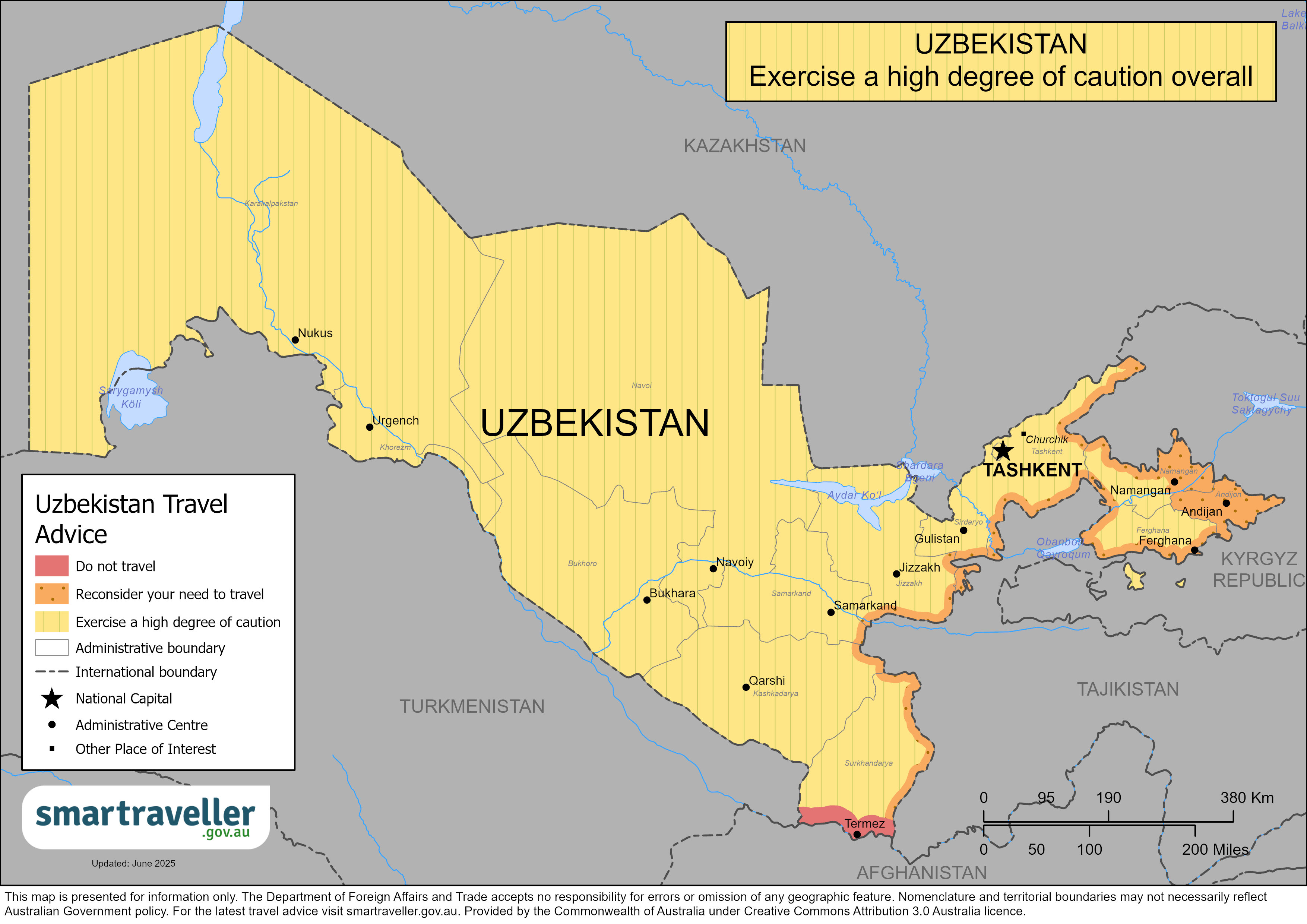Landmines
Unmarked landmines are a threat in regions bordering Afghanistan, Tajikistan and the Kyrgyz Republic (see 'Safety').
Driving permit
You can drive in Uzbekistan if you have both:
- an Australian driver's licence (digital driver's licences may not be accepted)
- an International Driving Permit (IDP)
You must get your IDP before departing Australia.
Road travel
You're more likely to be killed in a car accident in Uzbekistan as in Australia.
Rural roads are particularly treacherous, including in the Tian Shan and Fan Mountains.
Drivers must pay a fee to bring cars into Uzbekistan. The size of the fee depends on how long you'll stay. Pay at border crossings.
You need an official permit for any travel to:
- Termez on the Afghan border
- areas of Surkhandarya in the south-east
Security checkpoints are common.
Check you have the right insurance before driving.
Driving to border regions is risky. If you do, check in advance if the borders are open.
More information:
Motorcycles
Check your insurance policy covers you using a motorcycle, quad bike or similar vehicle.
Always wear a helmet.
Taxis
Use only registered taxis and limousines. Arrange them through your hotel if you can.
Public transport
If you plan to take the bus or train, check your itinerary carefully. Some domestic routes transit through bordering countries.
If this is the case, make sure you hold visas for the transit countries.
Rail travel can be unreliable and dangerous due to crime.
More information:
Air travel
DFAT doesn’t give advice about how safe different airlines or flight paths are.
Safety risks and weather events may cause flight delays and cancellations. Contact your travel agent or airline to confirm your plans.
In 2022, the International Civil Aviation Organisation (ICAO) issued a ‘red notice’ highlighting significant safety concerns with all Russian airlines. A number of countries, including the United States and the European Union have banned Russian air carriers from their airspace. Should you choose to take a Russian airline, check your insurance provisions and understand the risks associated with transport by Russian airlines.
Check Uzbekistan's air safety profile with the Aviation Safety Network.
More information:



